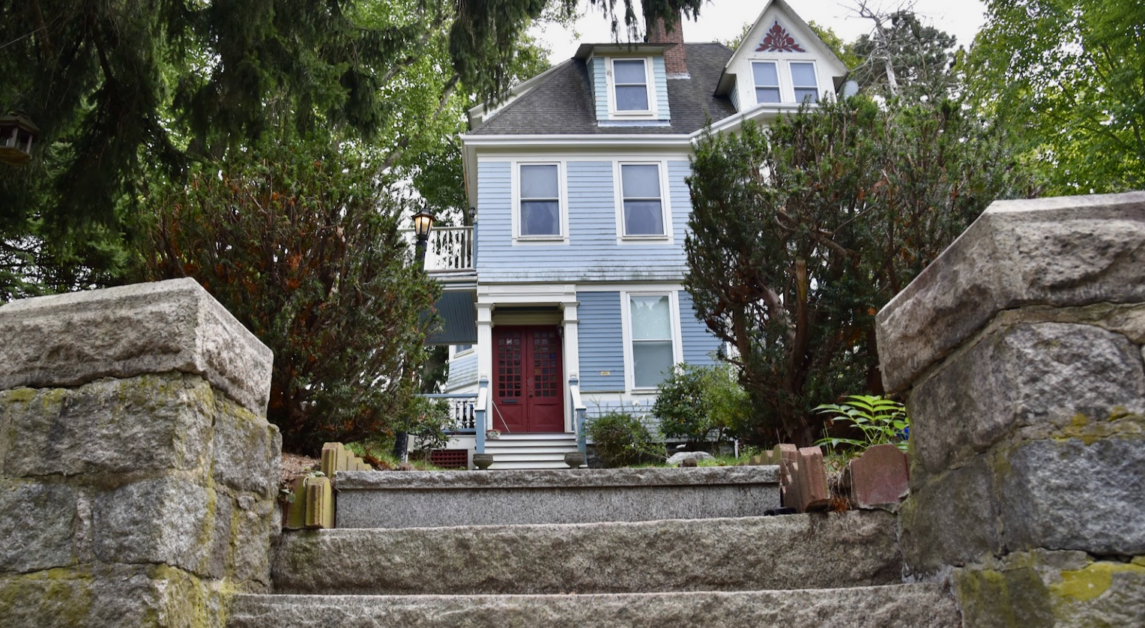On Monday night, Newton’s Zoning and Planning Committee heard public comment on a proposed rule for build-out ratios—zoning laws that decide how much of a lot a building can take up—intended to prevent construction of new homes that don’t match their neighborhoods.
“I guess we’re just concerned that this is another tool that may not be appropriate to the task,” Newton resident Robert Fizek said.
The proposal would add new regulations to Newton’s zoning laws on build-out ratios, specifically that the street-facing wall of a newly-built home make up no more than 60 percent of the side of the lot that faces the street.
This would help prevent the construction of homes that are bigger than those surrounding them, according to Zachery LeMel, chief of long range planning for the City of Newton.
“The appearance of the home from the street is the major factor,” LeMel said.
The rule could be applied to fit all types of homes across different neighborhoods in the city, according to LeMel.
“This, we saw, resulted in building forms that changed and were appropriate for the different scales and context of Newton’s different neighborhoods,” LeMel said.
According to LeMel, a new ordinance on build-out ratios would add to a body of municipal laws intended to guide development to fit existing structures in Newton’s neighborhoods.
“We should let the dust settle and see how all these rules work together and see what we get,” LeMel said.
A central challenge to these goals is the fact that 10 percent of Newton’s home sales end in teardowns. Those homes are often built bigger—often by more than 2,000 square feet—and at a higher price tag, driving housing further out of reach for lower-income individuals and families.
But the incentive to tear down old homes and replace them with newer, bigger ones will always be there, according to LeMel, making preventing teardowns unrealistic.
“They’re usually smaller homes on very large lots, and because of that, the smaller homes—they have a lower value,” LeMel said. “When a new home is able to be built, then there’s a lot more value on the table.”
Turning the city’s focus to directing how new homes are built is the next best option, and build-out ratios are a good way to approach that, according to LeMel.
“From the beginning, staff have said it’s not about the teardown, per se, it’s about what replaces it,” LeMel said.
Buildings under one-and-a-half stories would be exempt from this rule, as the city is mainly interested in preventing the construction of homes too large for their neighborhoods. Wider ranch or Cape-style homes are not as much of a problem, LeMel said.
“This one single story or one-and-a-half story development is much less obtrusive, given that it’s much lower and not as tall,” LeMel said.
Also exempt from this proposed rule would be lots for which there is little to no frontage, lots for which the frontage is difficult to measure, or lots in which the frontage is less than 60 feet. LeMel said exempting these “odd-shaped” properties from the law would be more effective than trying to tailor a specific law to them.
“Adding another regulation will end up in a house that isn’t wide enough to just accommodate and to just kind of meet basic building standards or basic needs for those residents,” LeMel said. “What we decided to do is say, if you’re 60 feet wide or less, they should be exempted from this.”
After the presentation, some residents offered feedback. One resident, Jay Walter, said he didn’t want any more complexity added to Newton’s zoning laws, as he feared it might drive up the prices of construction and therefore housing for the consumer.
“This proposal adds yet another layer of complexity to a zoning which is already too complex,” Walter said. “As such, we believe the proposal will increase building costs for property owners and contribute to further upward pressure on the housing prices.”
Another resident, Mary Lee Beleville, said that she didn’t think the build-out ordinance would tackle the core issue, which to her is home teardowns.
“I just struggle to understand how this really significantly moves the margin on teardowns,” Mary Lee Beleville said.
David Edison, another resident, said the city council has limited control over many factors of housing affordability, but felt regulating build-out ratios would be a step in the right direction.
“We cannot control the market that exists in this great city, but we can assert some control over what things will look like and how it will fit into the neighborhood,” Edison said. “I’m very supportive of this.”














